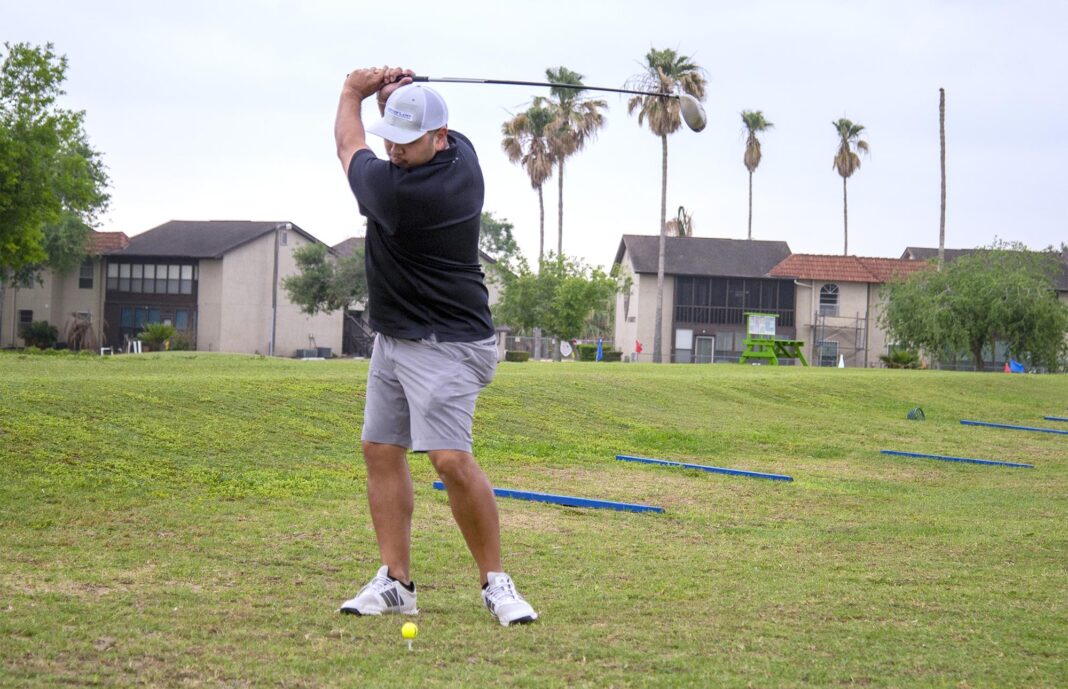HARLINGEN — City commissioners are getting ready to make their pitch for a $1.2 million favor.
On Friday, commissioners are set to request the Harlingen Community Improvement Board fund the remaining $1.2 million chunk of a $3.1 million project aimed at upgrading the Tony Butler Golf Course to help draw more players as part of a plan to turn the 92-year-old Rio Grande Valley icon back into a money-maker.
In June, the board earmarked its last $1.8 million to help fund the $3.1 million project aimed at replacing the golf course’s old irrigation system while upgrading its greens.
During that meeting, board members turned over the remainder of the project’s funding to commissioners.
However, city officials believe the board would serve as a better funding source than the city’s $48 million general fund budget.
While the general fund is open for such projects as drainage upgrades and street repairs, the board’s budget is funded through a one-eighth-cent sales tax earmarked to finance so-called quality of life projects such as the golf course overhaul, Mayor Chris Boswell says.
Now, city officials believe the board can also fund the project’s $1.2 million balance with about $6.7 million remaining in the bank, earmarked to finance part of the golf course project along with the $4.1 million second phase of the plan that’s turning Lon C. Hill Park into a multimillion-dollar destination park.
As part of the city’s sales pitch, officials are projecting sales tax revenue will boost the board’s budget by about $3.5 million by the time it pays for its two projects when they’re completed in about two years.
On Wednesday, Jesse Robles, the board’s chairman, didn’t respond to phone calls and messages requesting comment.
Weighing options
At City Hall, officials are coming up with back-up plans in case the board declines to fund the remainder of the golf course project.
“That’s something for the city council to discuss in the near future — what options they want to consider,” City Manager Dan Serna said.
Officials might be weighing three options, including funding a project with the $1.8 million the board set aside in June, Boswell said.
“We could do as much as we can with the funding the Community Improvement Board has approved,” he said.
Such a project would aim at replacing the golf course’s irrigation system, Serna said.
“The irrigation is key,” he said. “If we have money left over, we’ll work on the drainage system.”
Under the plan, officials would delay the greens’ upgrade.
Meanwhile, golf course General Manager Jeff Hart and his crew have been working to transform the course, aerating greens while adding fertilizer along with pesticides to kill nematodes — pests eating up the turf.
Boswell said officials could also dip into the city’s $21.6 million cash reserve, enough to the run city operations for 154 days in case of emergency, far more than the state-recommended 90 days.
Officials could also turn to other sources to fund the project, he said.
The overall project
As part of the overall $3.1 million project, Serna is calling for a $1.9 million overhaul of the golf course’s old irrigation system.
Meanwhile, the project is also calling for a $575,575 upgrade of the grounds, aimed at pushing up the greens while pumping $264,000 into developing drainage in low-lying areas.
Officials are counting on upgrades drawing more players to pull the golf course out of the hole.
During last month’s budget workshops, a financial report showed the golf course generated $666,986 while taking $983,470 in expenditures, leaving a shortfall of $316,484 during the current fiscal year.
According to the report, the golf course has run annual deficits ranging from $419,713 in fiscal year 2015-2016 to $223,731 in 2018-2019.
After running shortfalls for about eight years, the golf course’s total deficit stands at $846,548, a report showed.
Consultant’s report
In 2019, officials paid $22,000 to hire the National Golf Foundation, a national golf consulting firm, to recommend upgrades aimed boosting revenue to help the course pay for itself.
In a 97-page report, the consultants recommended as much as $3.7 million to $7 million worth of improvements aimed at overhauling much of the golf course.
Recommendations included rebuilding or replacing “major infrastructure components of the 18-hole course — greens, irrigation system, bunkers, drainage” at a cost of $3.75 million, the report states.
“We recommend, at a minimum, replacing and/or upgrading all major infrastructure components, including greens, irrigation system, bunkers, drainage and tees.”





